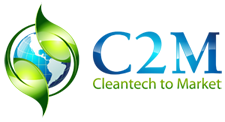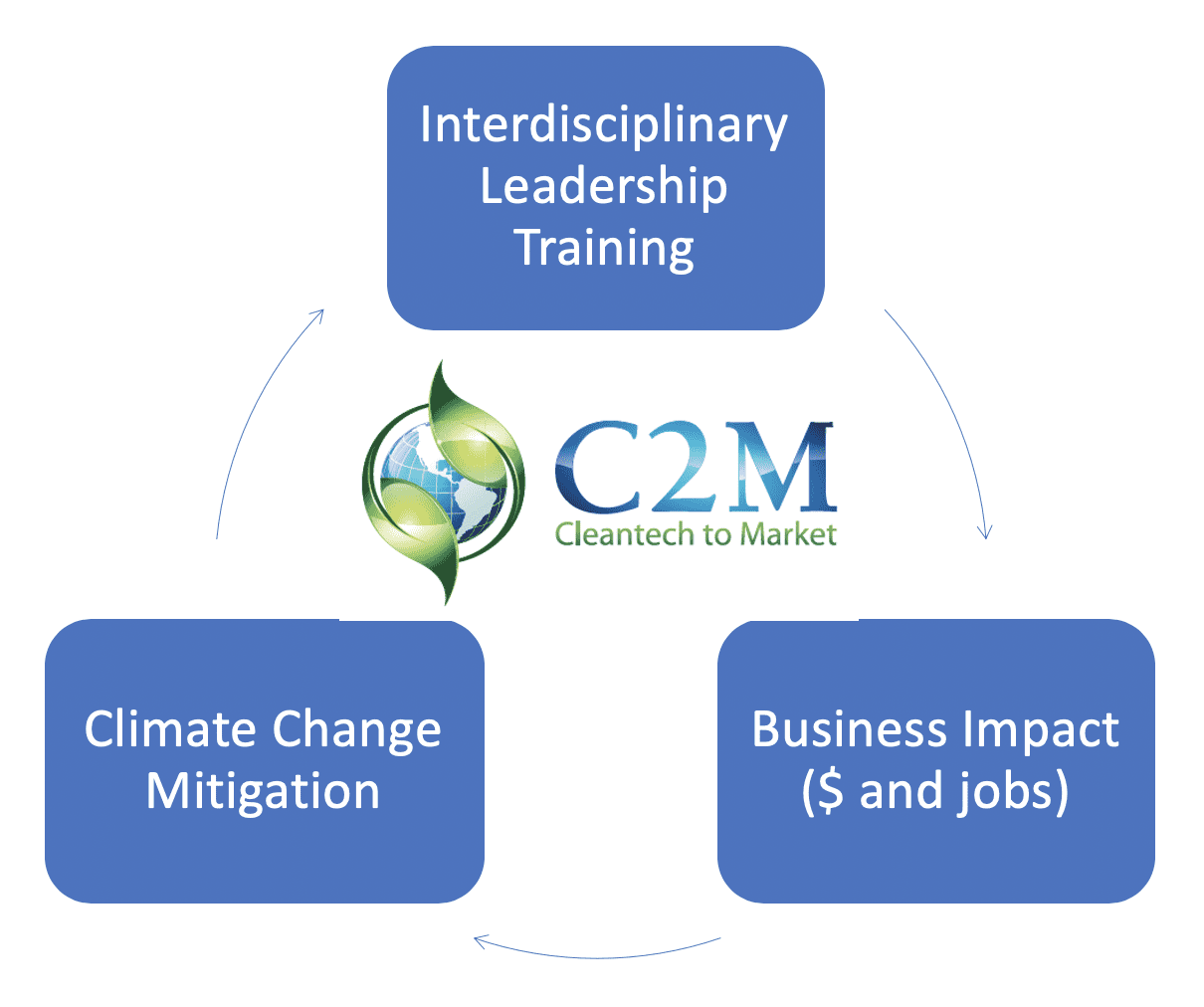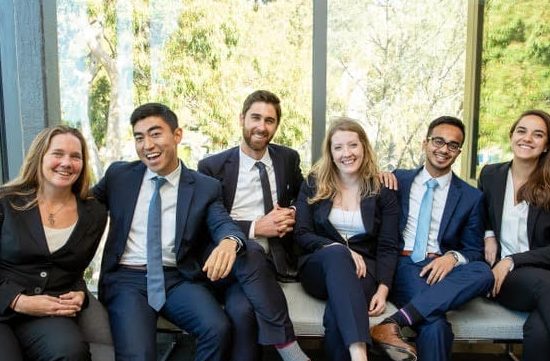Cleantech to Market Course (C2M) for Graduate Students:
Apply for C2M Course (by April 28, 2024)
C2M is now accepting applications from graduate students to help entrepreneurs in our 2024 cohort identify the most viable initial markets, prospective customers and partners, funding sources, and related strategies in low-carbon energy, green chemistry, food, and water technologies, covering both mitigation and adaptation. Review our 2024 startup finalists. Additional information, including timeline, application process, and info sessions can be found below.
For more information please email [email protected].
Ryan Hanley Opening Speaker at 2023 C2M Summit:
Learn About Ryan’s C2M Experience
CEO/Co-Founder, Equilibrium Energy
Berkeley Haas, MBA 2011
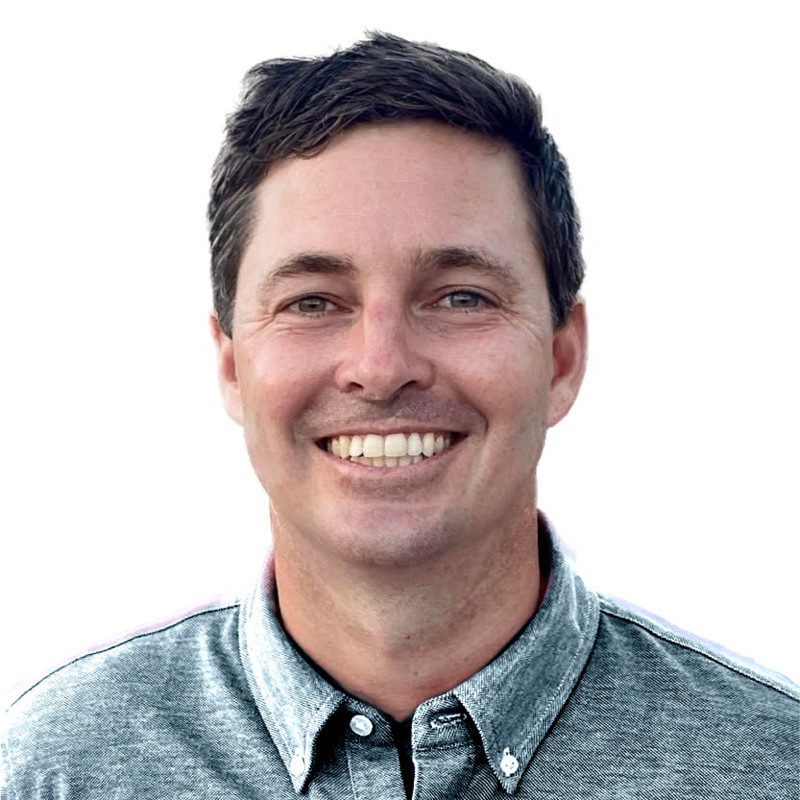
Student Process FAQs:
C2M–Inspiring Climate Tech Leadership–is a capstone, experiential, interdisciplinary program in which UC Berkeley graduate students from a wide range of disciplines help innovators commercialize emerging cleantech from leading accelerators, universities, and government programs, including DOE’s ARPA-E, Cleantech Open, Activate, California Energy Commission-supported initiatives like CalSEED—New Energy Nexus, Southern California Energy Innovation Network (SCEIN), Los Angeles Cleantech Incubator (LACI), Bluetech Valley, as well as UC Berkeley, Stanford, Caltech, Princeton, MIT, Berkeley Lab, and other top-tier organizations.
C2M’s interdisciplinary graduate student teams assist entrepreneurs across the country with a wide array of promising climate tech innovations: low-carbon energy, green chemistry, food, and water technologies focusing on mitigation, adaptation, or both.
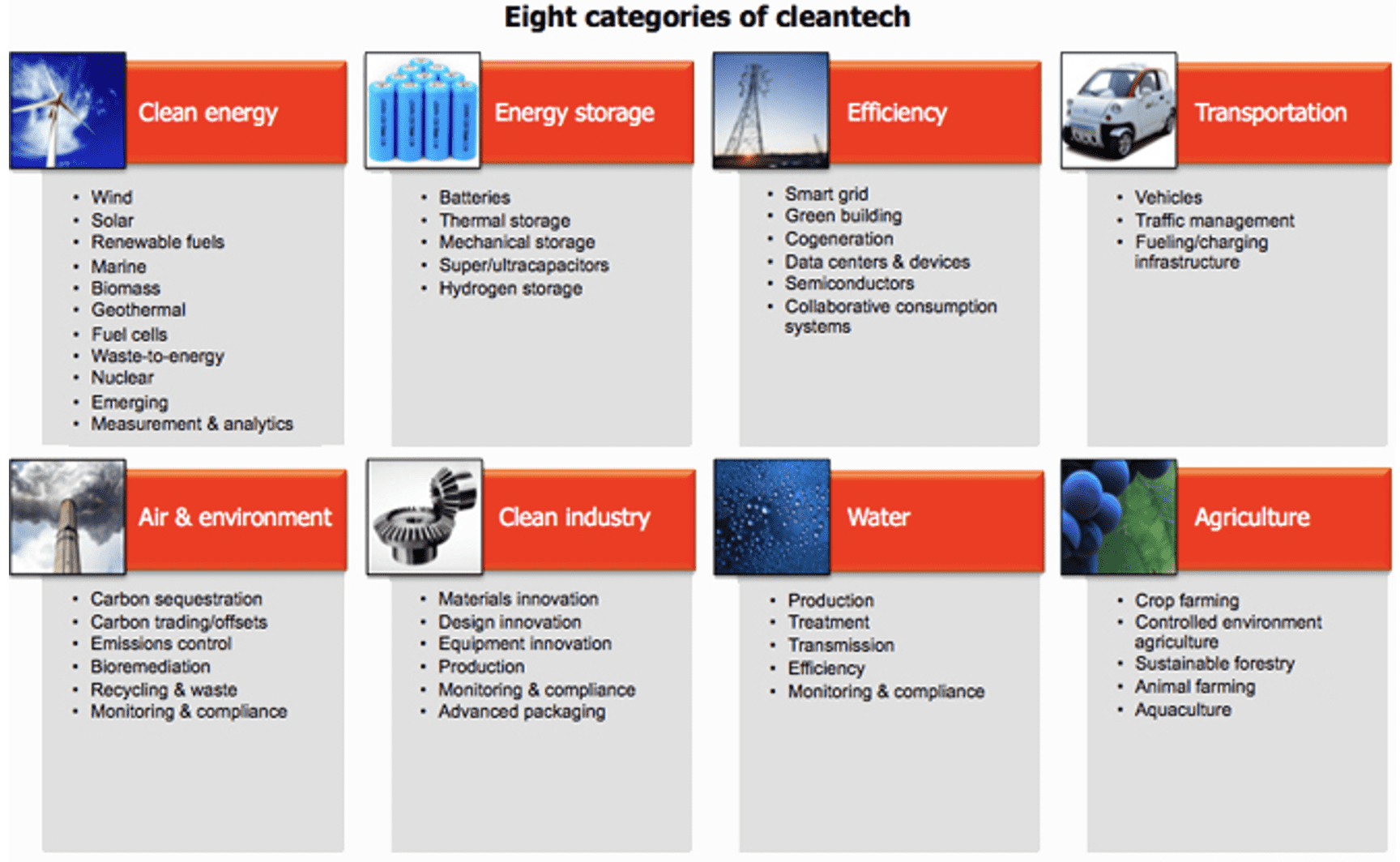
C2M first selects a cohort of innovations that have strong potential for commercialization. C2M then hand selects graduate student commercialization teams from over 20 programs at UC Berkeley, including business, engineering, science, law, policy, and the Energy and Resources Group. C2M supports the teams with professionals who bring deep subject matter expertise (e.g., renewable energy, clean water, green chemistry, early-stage venture, etc.). These professionals guide the students as speakers, mentors and key contacts (each team interviews approximately 40 relevant industry contacts). Brian Steel and Bill Shelander lead the C2M process, contributing a combined 100+ years of experience in cleantech, innovation and entrepreneurship.
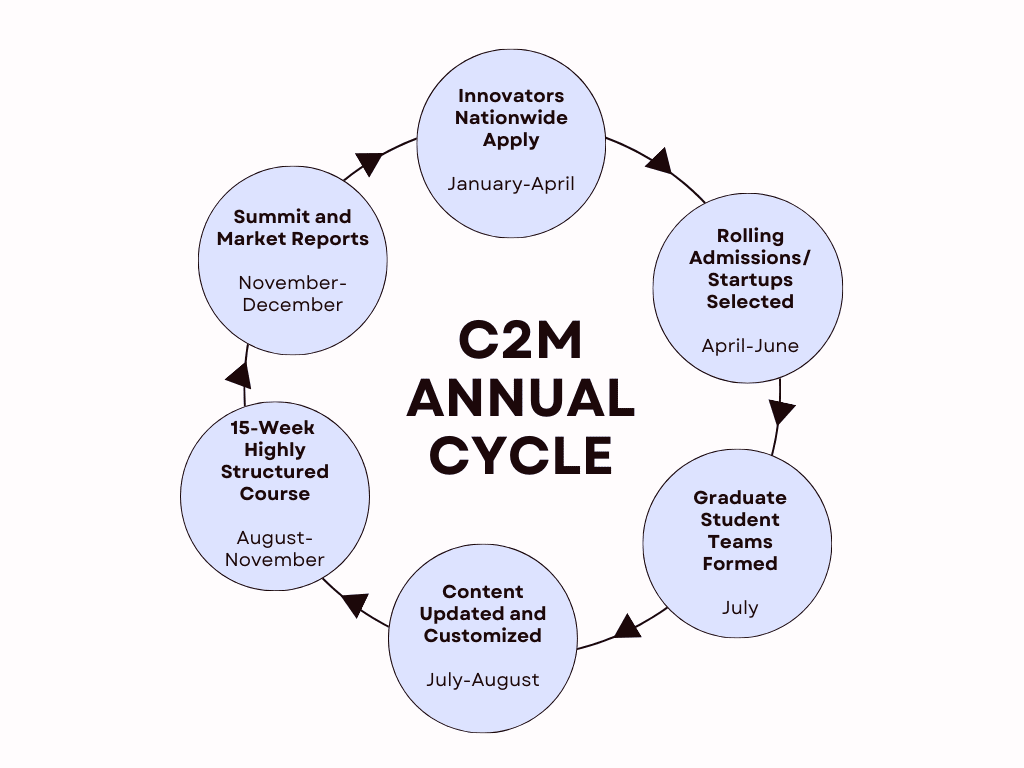
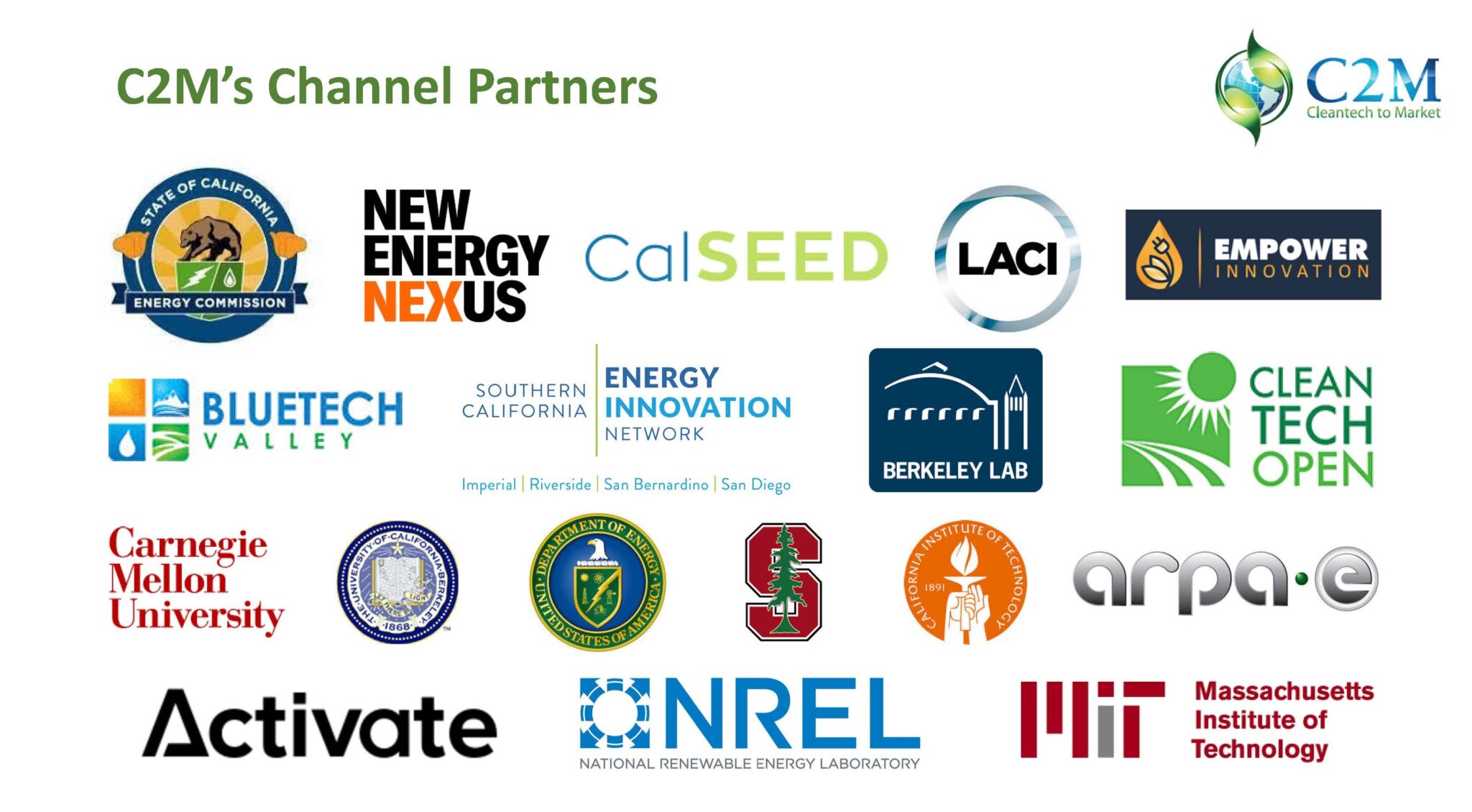
2024 Timeline:
- January: Startup application opens
- March 21: Finalist startups selected and announced
- April 4, 10-12, 15, 19, 22: Student info sessions
- April 23-26: FT/EW MBA students to bid into C2M
- April 28: Deadline for applications from ALL students, including FTMBAs/EWMBAs, including stack-ranking of startup preferences and CVs
- April 29 – May 3: Primary phase of team formation
- May 6-10: Secondary phase of team formation (select additional non-MBA students, if needed)
- May-June: Entrepreneur intros, team bonding, day one slide prep
- August 20: C2M fall course begins
- December 6: C2M annual public Summit
- Mid-December: Market reports due
During the fall semester, each cross-disciplinary C2M team provides approximately 1,000 hours of market research and develops recommendations for each project, including the identification of initial target customers, commercialization pathways, market-based performance specifications, and potential funding sources. These activities are guided by C2M’s carefully honed commercialization process, which is reflected in a detailed online syllabus. The teams are also extensively coached by C2M’s experienced faculty and outside mentors.
Four phases of C2M’s curriculum:
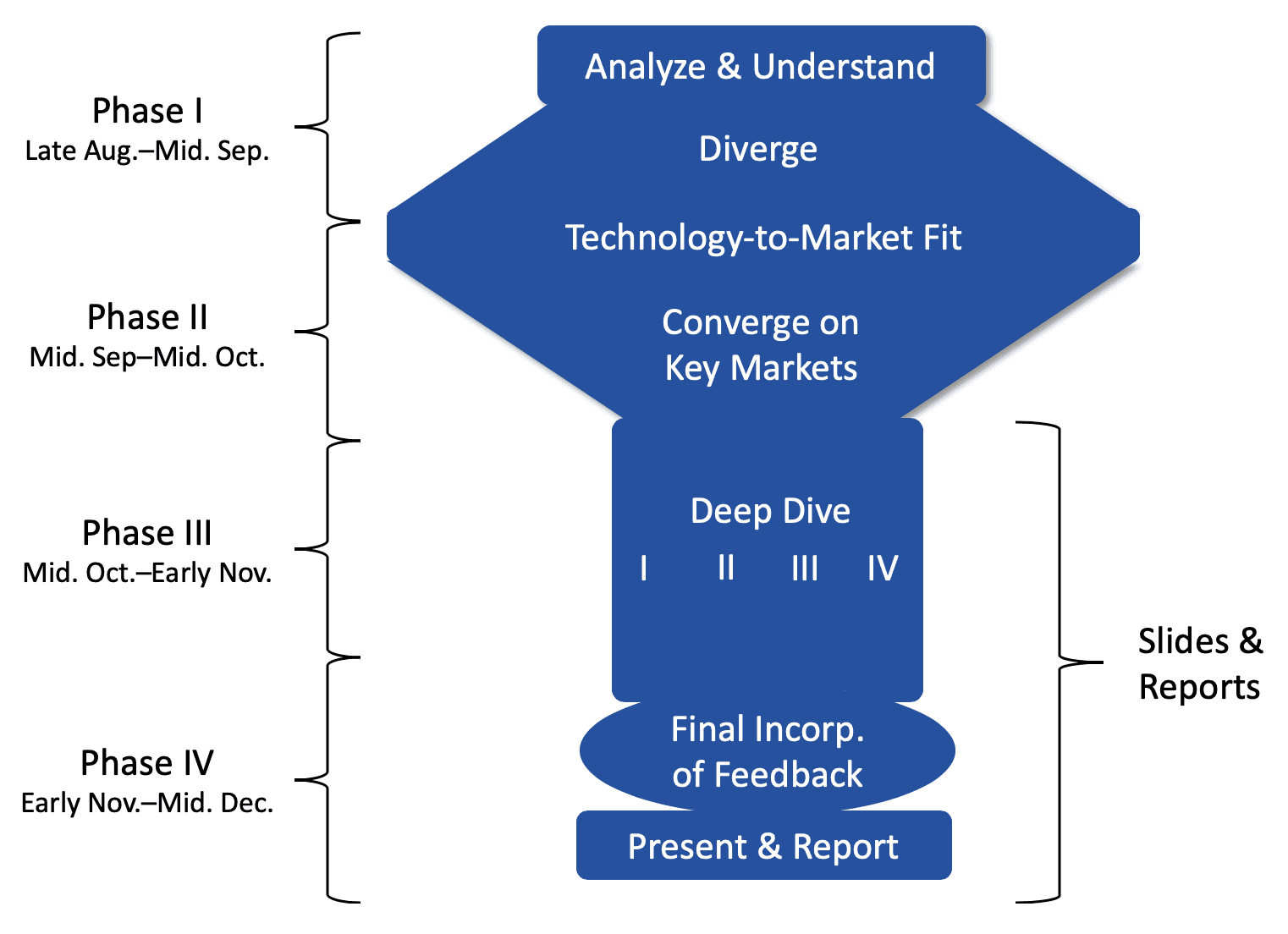
C2M is a very teamwork-oriented experiential course

C2M’s 15-week commercialization process trains C2M students in a range of leadership, decision making, and commercialization skills that help them become the next generation of leaders capable of addressing critical energy, environmental, and climate change issues. As a result, C2M students have gone on to become a “who’s who” in cleantech leadership. Here is a sampling of the companies they work for:
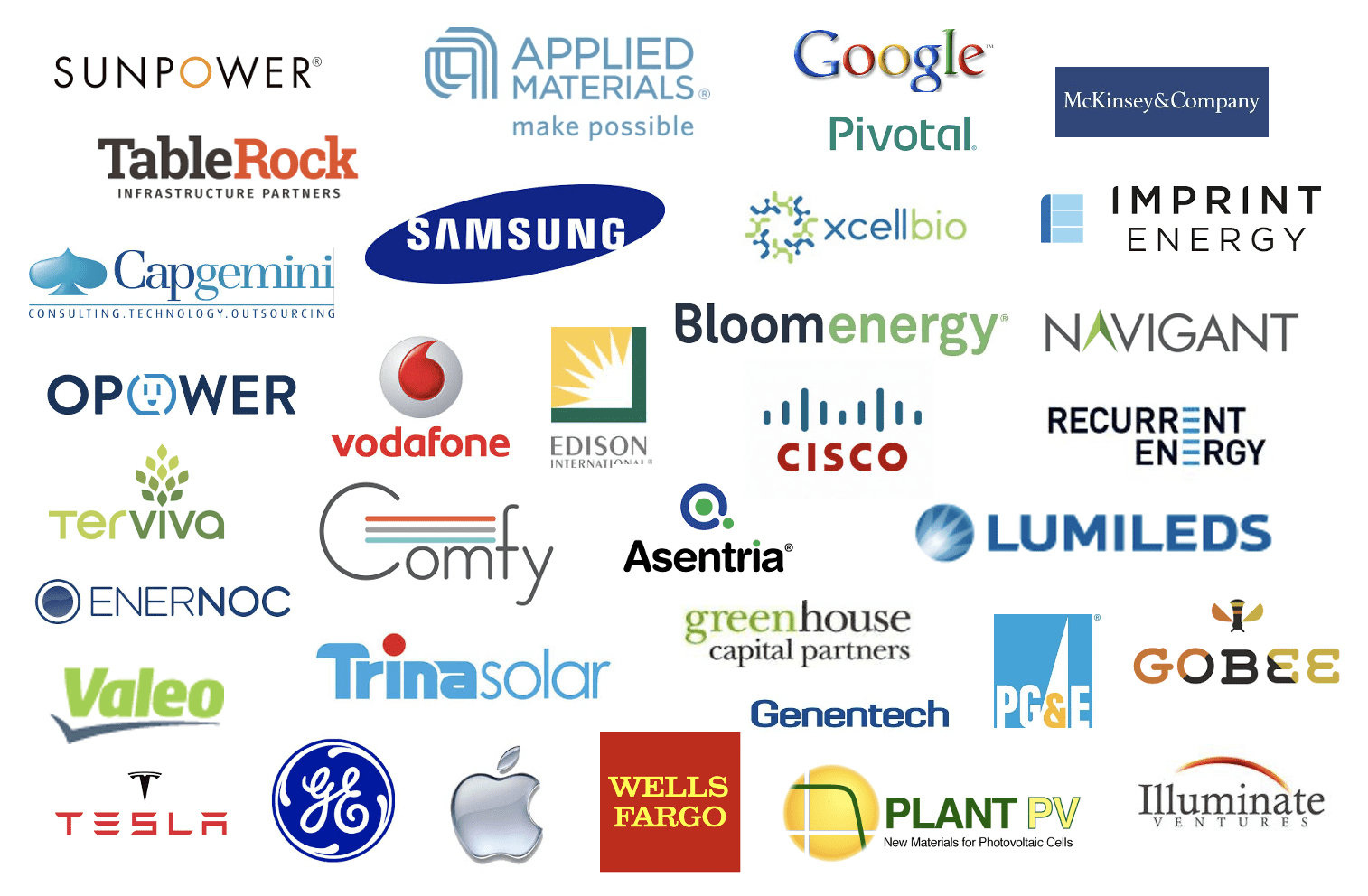
Here are testimonials and a “word cloud” from 10 years of C2M alums on what they valued:
- Commercialization training: “It was a really good experience learning how to commercialize new technology – first understanding the technical hurdles, then the commercial hurdles, and then working with an interdisciplinary team to package that into a coherent story. That basically describes my current job.”
- Engagement with startups: “No other program rivals C2M on meaningful engagement with cleantech startups.”
- Cleantech learning & networking: “C2M involves tremendous learning, amazing professors, and an incredible network.”
- High-quality experiential learning: “Fantastic experience & learning opportunity.” “Remarkable real-world applicability.” “This class was one of the reasons I decided to go to Haas and it lived up to its expectations.” “One of the best reasons to attend Berkeley.”
- Career switching into cleantech: “This class has given me access to clean energy. It helped me make the transitions MBAs are always trying to make.”
Business learning for other disciplines: “If you’re a science or engineering Ph.D. thinking about options outside of research and are interested in cleantech and business, you can’t NOT apply for this course.”
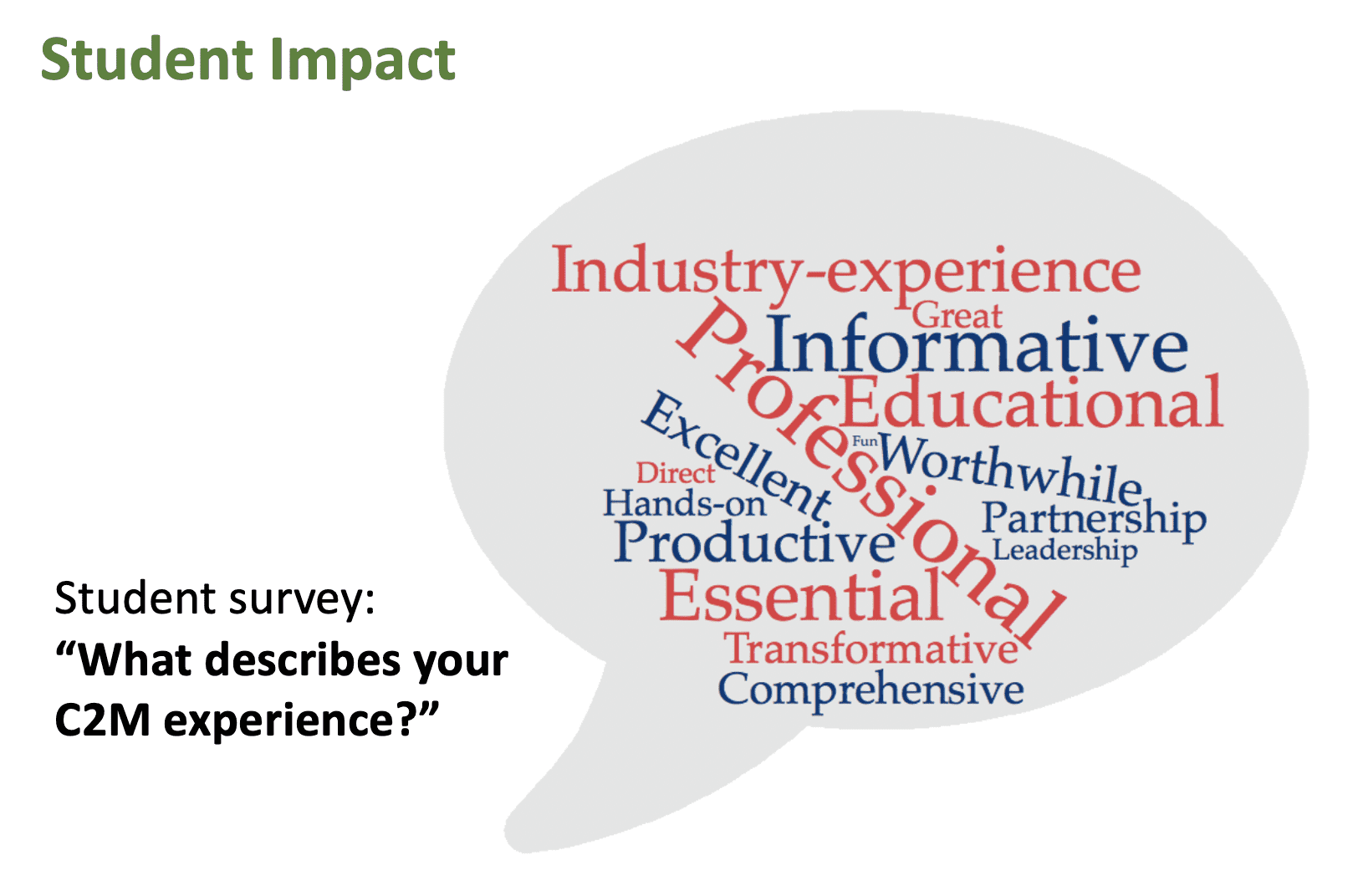
Innovators value C2M’s help with technology positioning, target market assessment, customer needs identification, business model brainstorming, funding ideas, cost–performance tradeoff insights, and other deep market research that can be used with potential partners and investors. A recent study offered entrepreneurs from past cohorts the chance to describe C2M’s impact:
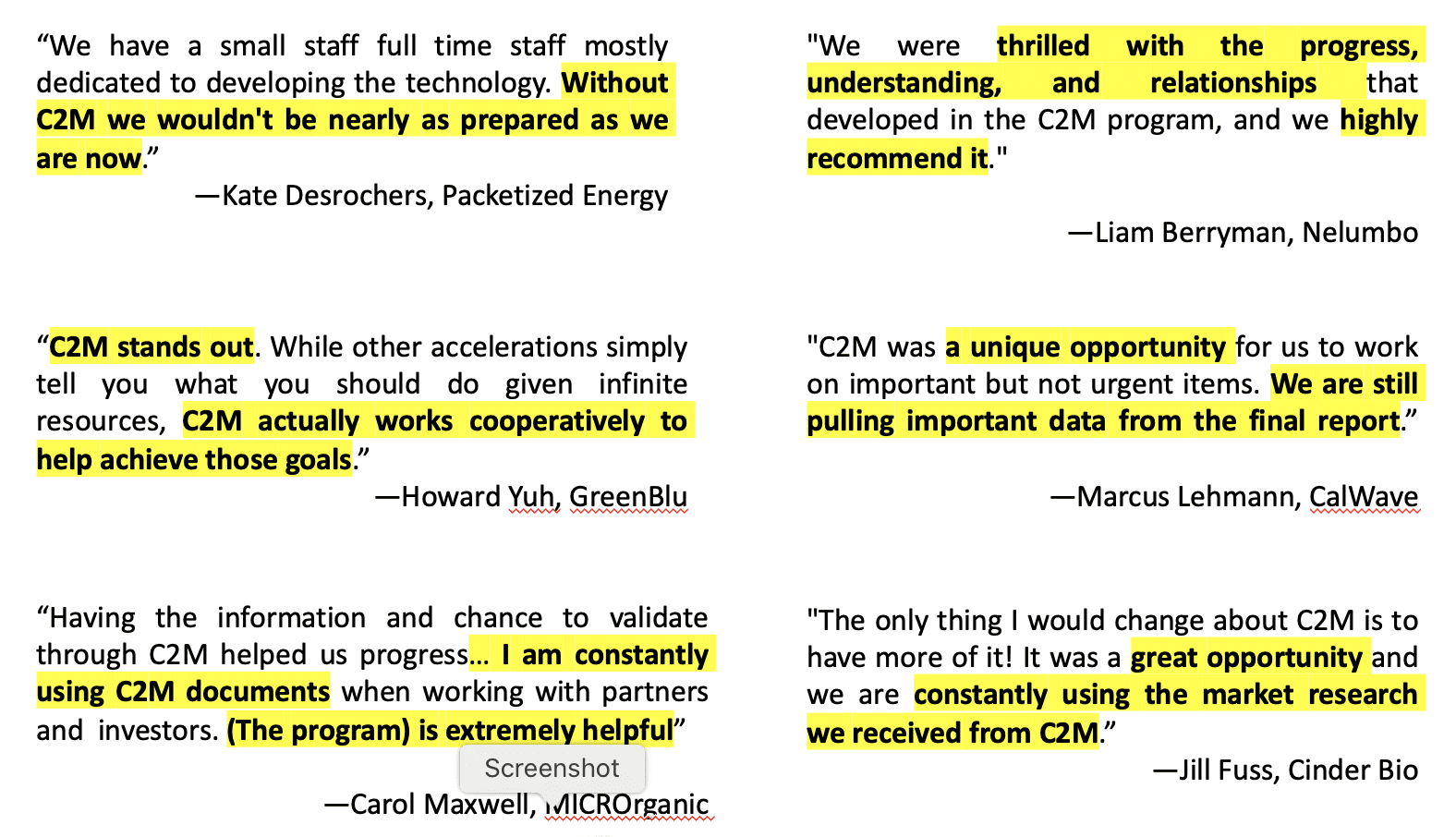
Any graduate student at UC Berkeley may apply for the C2M course, and we’ve accepted students from over 20 different disciplines as they are relevant to each year’s projects.
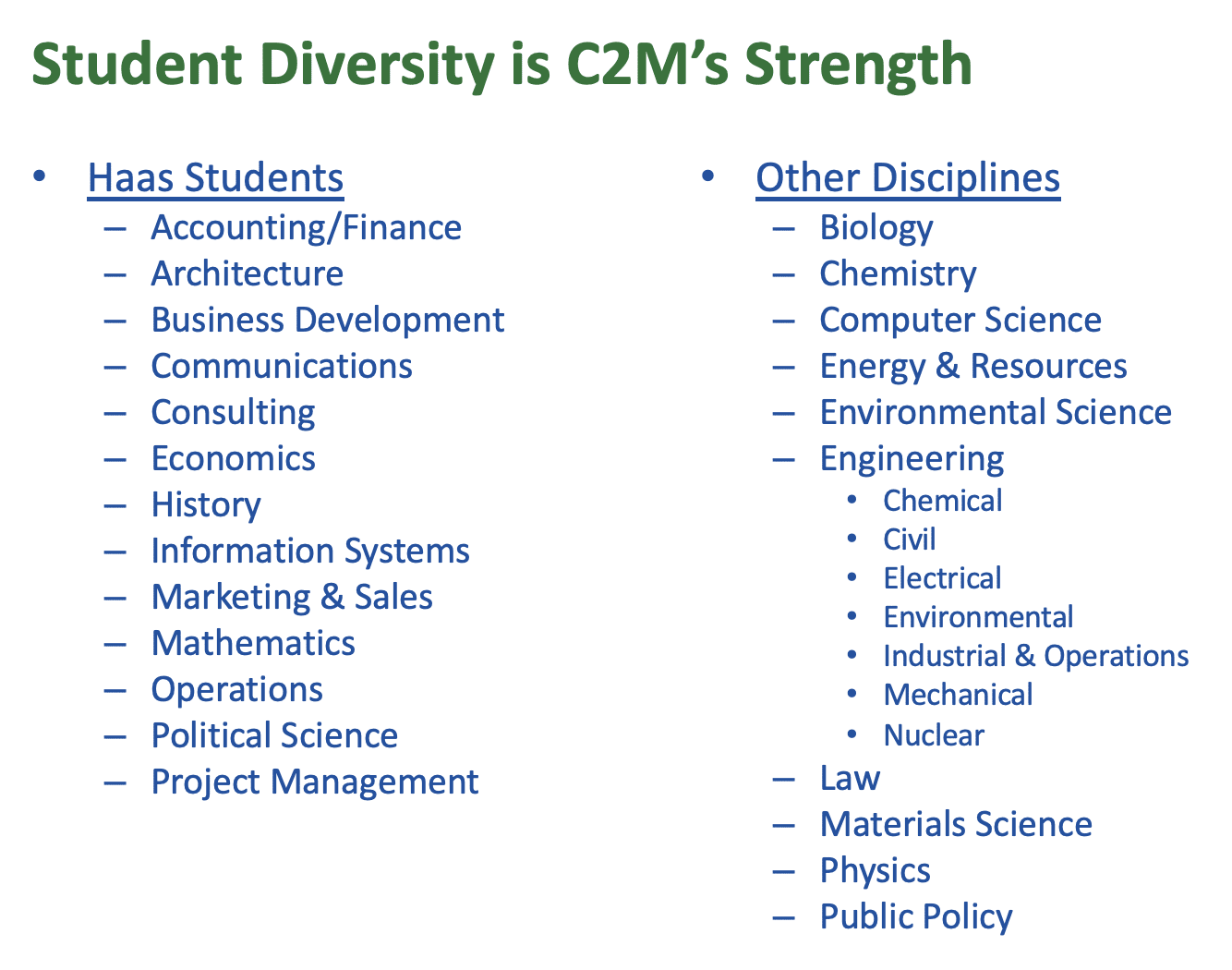
Haas students bid into the C2M course during the normal bidding process. Students from outside Haas fill out an online application and are selected based on the needs of each project. We have Haas students fill out the same application form after they bid into the course so we can assign them to teams based on their project preferences and backgrounds.
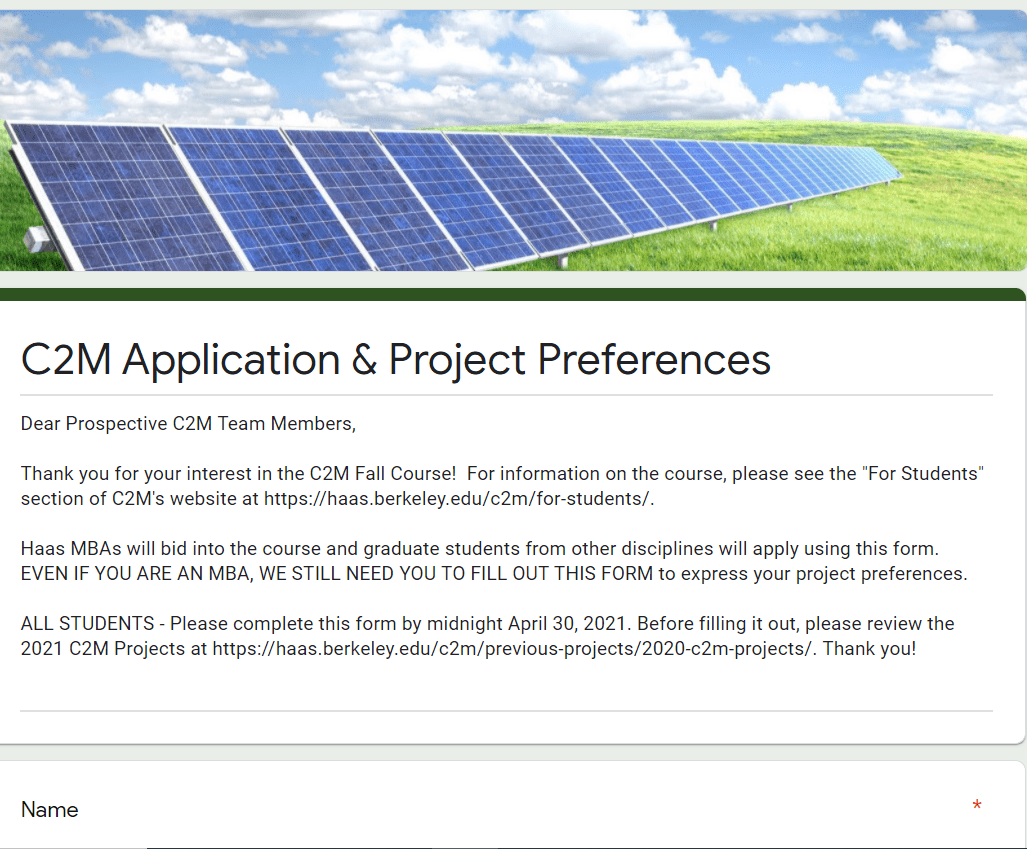
Students work on 4-6 person teams. The teams usually have 2-4 MBAs and 2-3 students from other disciplines. For example, a 6 person team might have 3 MBAs, a PhD in biochemistry, a law or public policy student, and one of the relevant engineering disciplines.
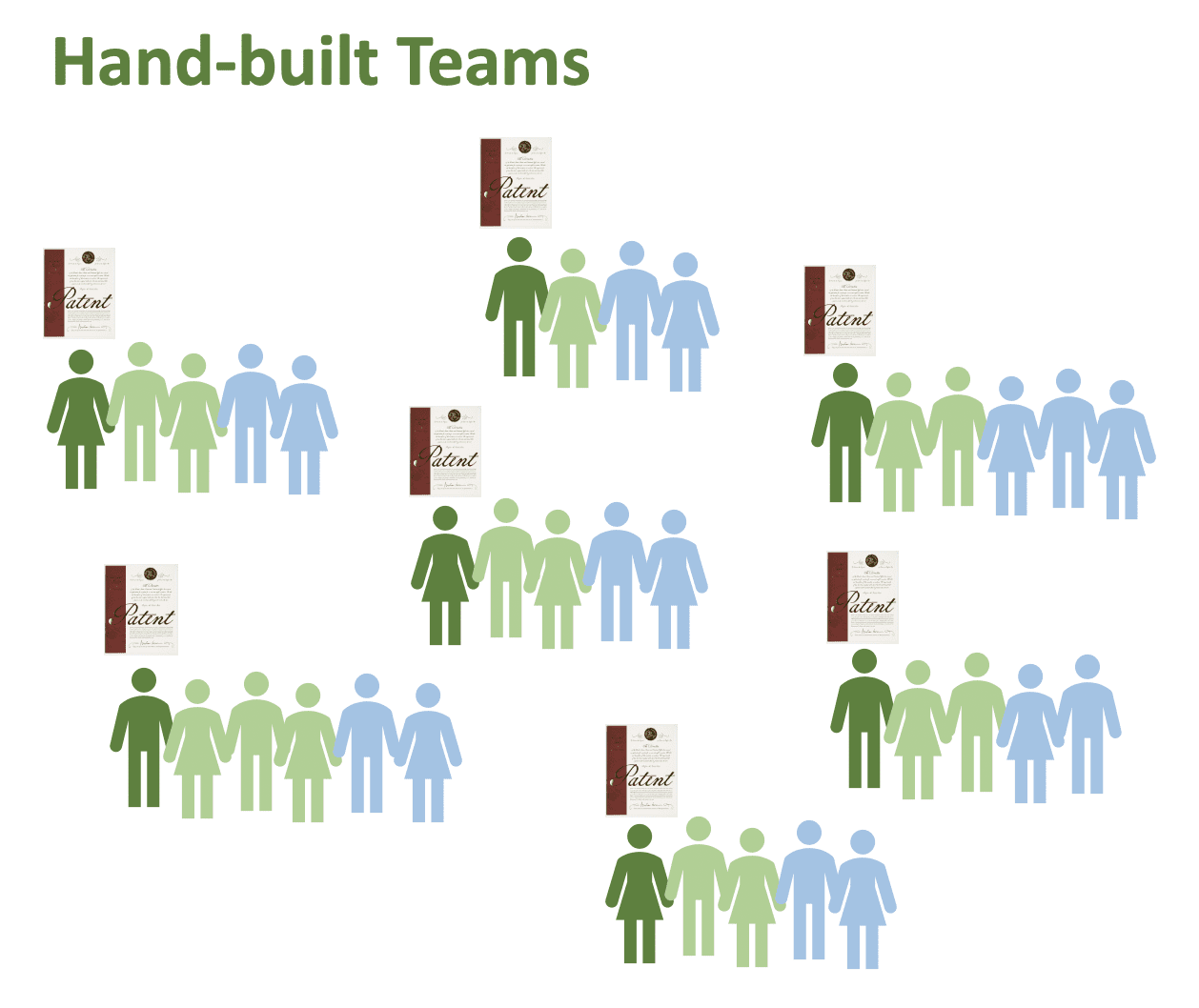
In addition to interim deliverables, C2M students produce two final work products:
Market Research Report (approximately 100 pages of core content plus appendices). In their market research reports, students cover topics such as:
- Potential application in multiple markets
- Alignment with target or desired market(s)
- Distinguishing advantages and disadvantages
- Customer and user profiles
- Top competitors
- Commercialization and scale-up challenges
- Relevant government policies
- Revenue potential and cost sensitivities
- Intellectual property issues
- Business and licensing models
- Possible venture, industry or research partners
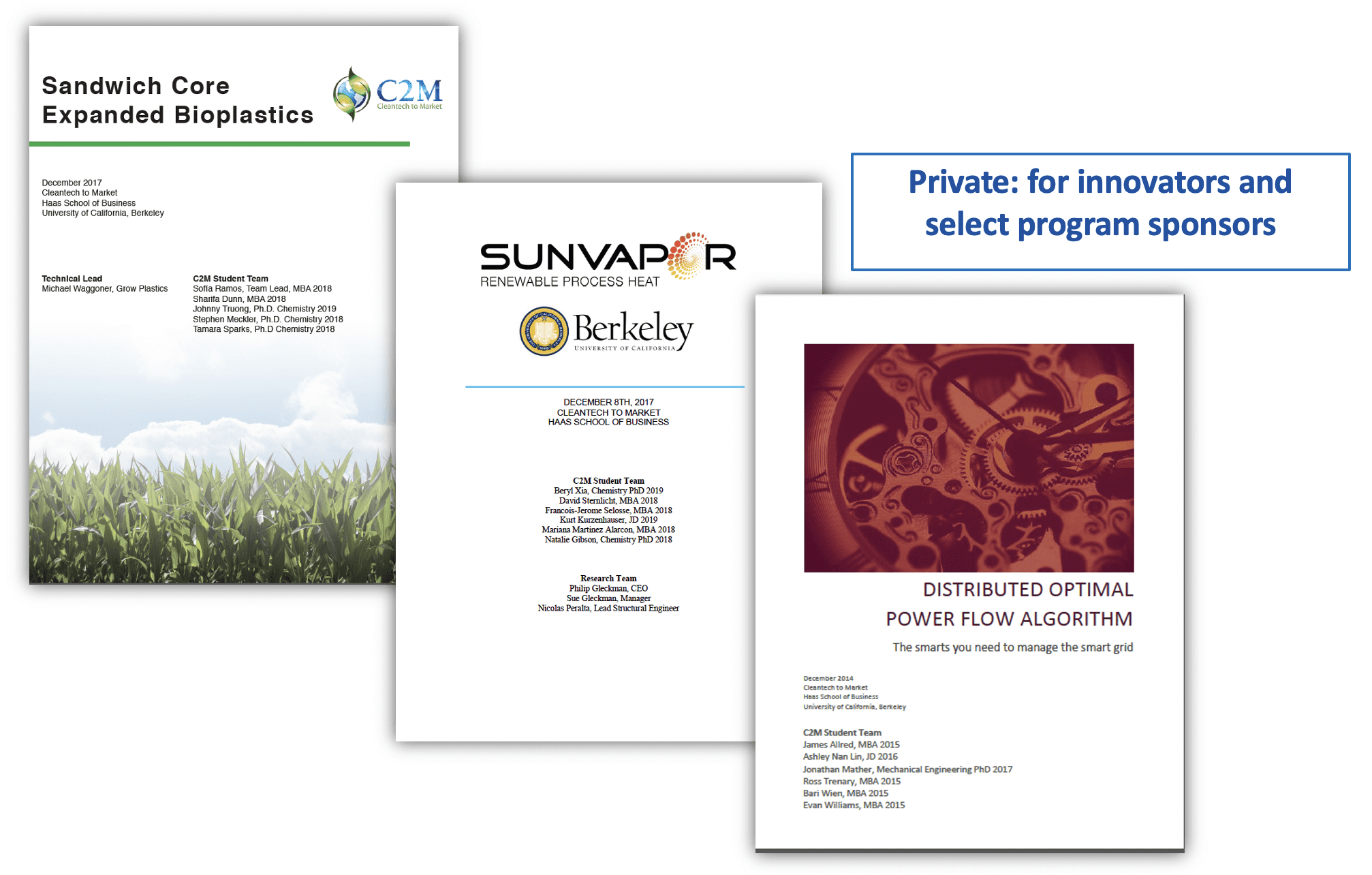
Public Summit: At the end of the semester, students present their findings to an audience of approximately 250 cleantech professionals. Each team has 20 minutes to present their technology and findings, after which they field 10 minutes of live Q/A from a very knowledgeable audience. Over the years, C2M’s annual summit has evolved into a well-attended public conference where C2M students and our project entrepreneurs engage in valuable networking.
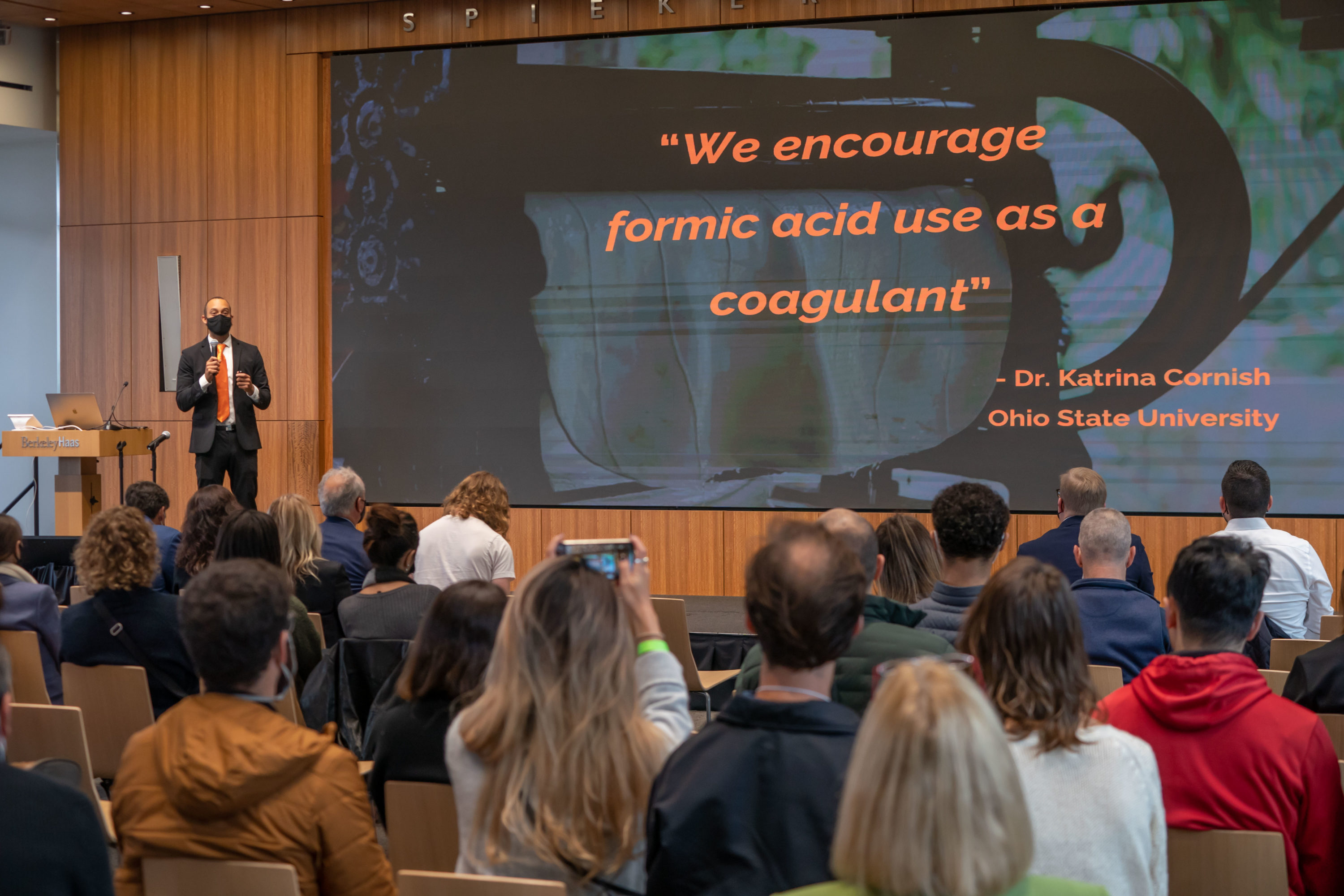
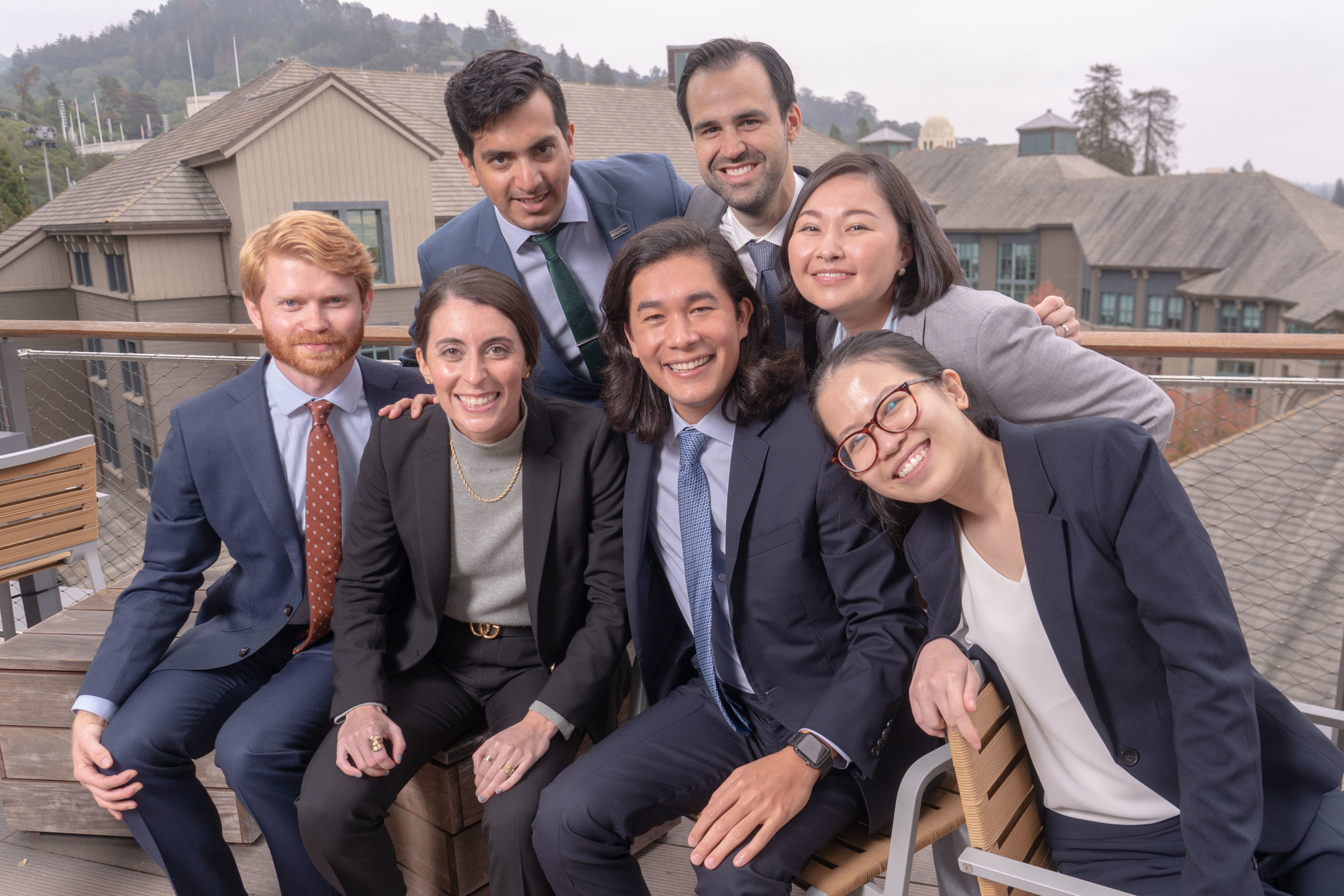
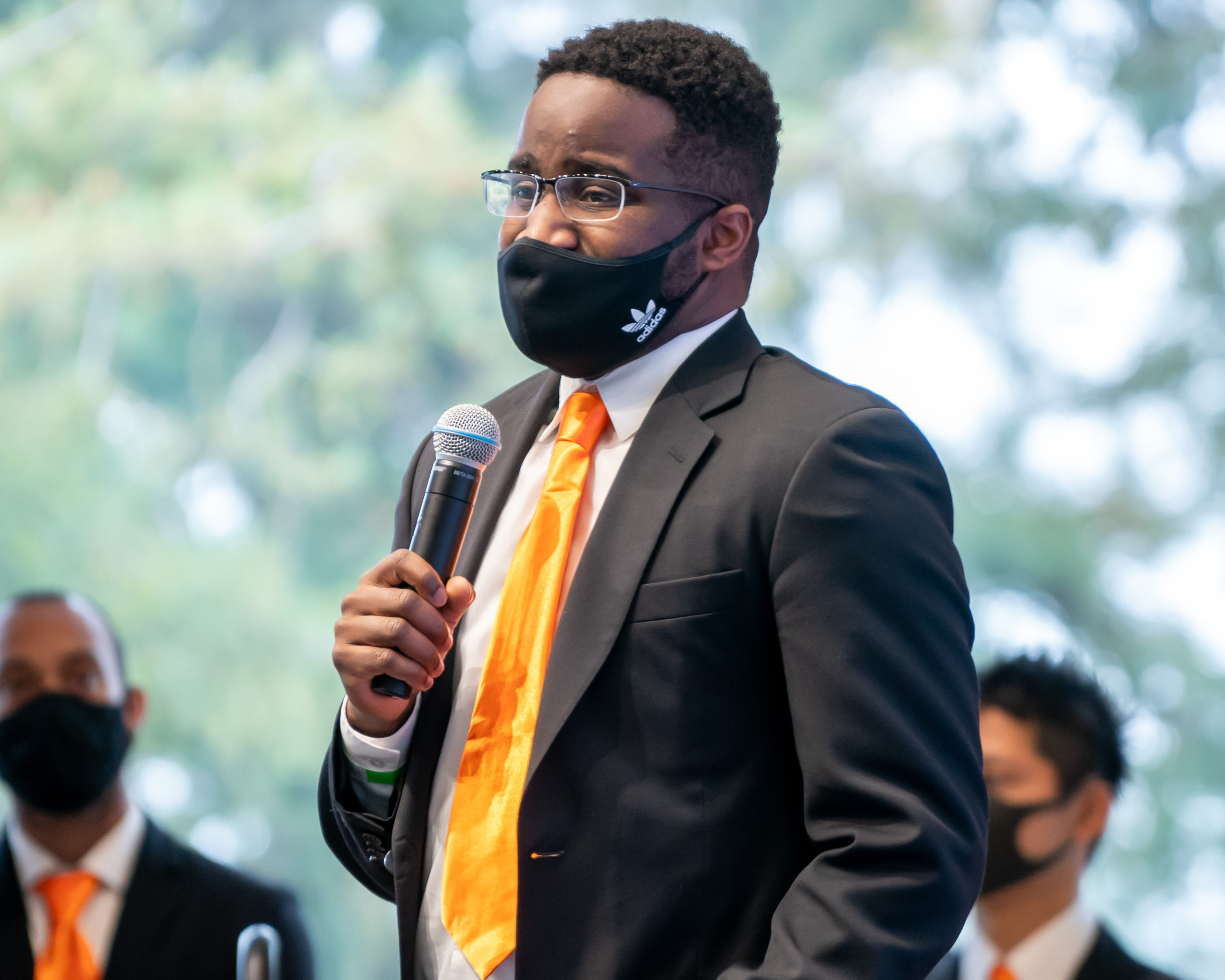
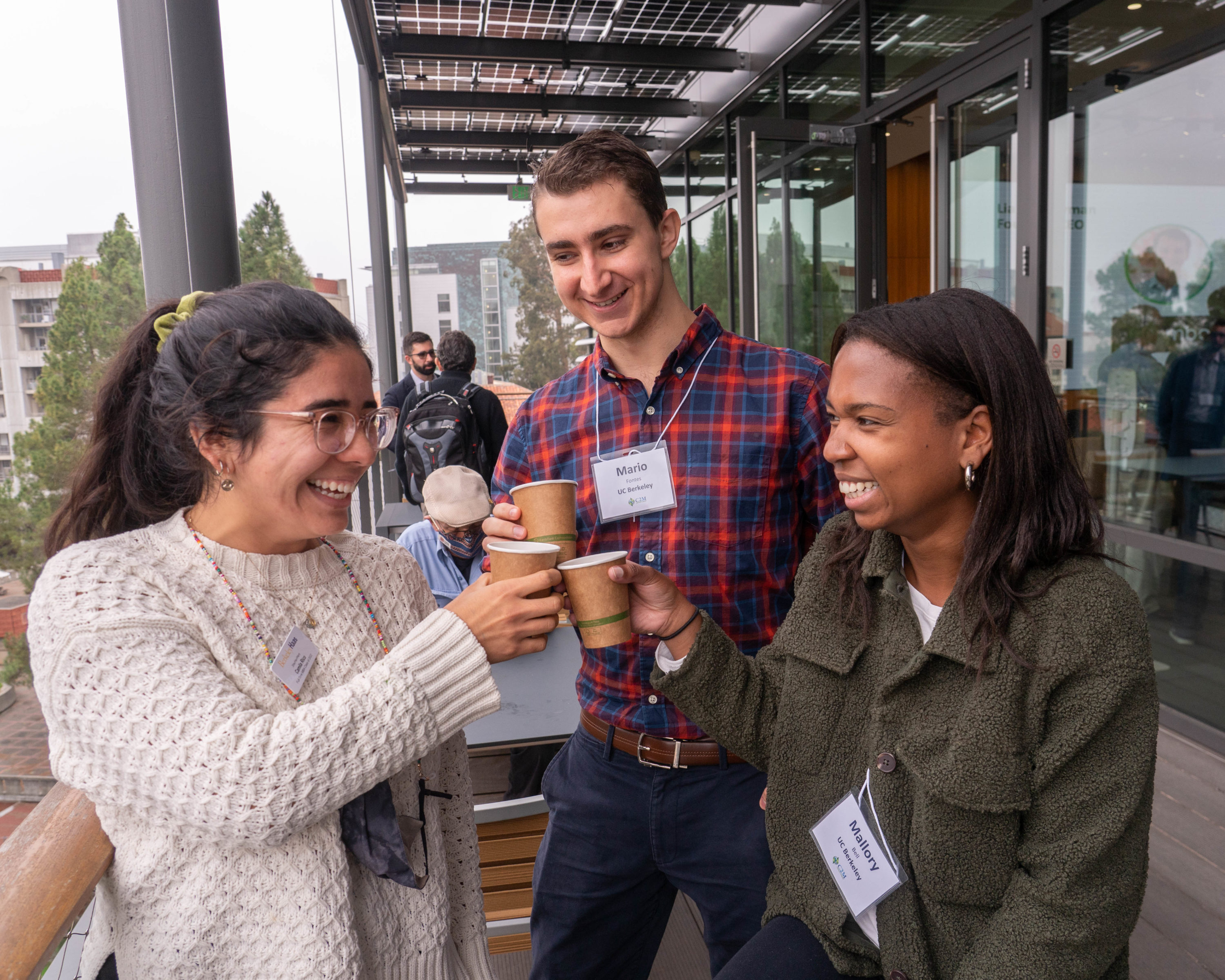
C2M is a three-unit course and is part of the Haas Applied Innovation Initiative. The course meets at Haas two days a week with additional events and teamwork outside of class. While we have to reconfirm this every year, C2M’s typical time slot is on Tuesdays and Thursdays from 11:00 am to 12:30 pm with occasional guest speaker lunches after class (attendance at those are optional). C2M students are expected to invest roughly 9 hours per week in the course – 3 in class and 6 outside of class (teamwork and market research).
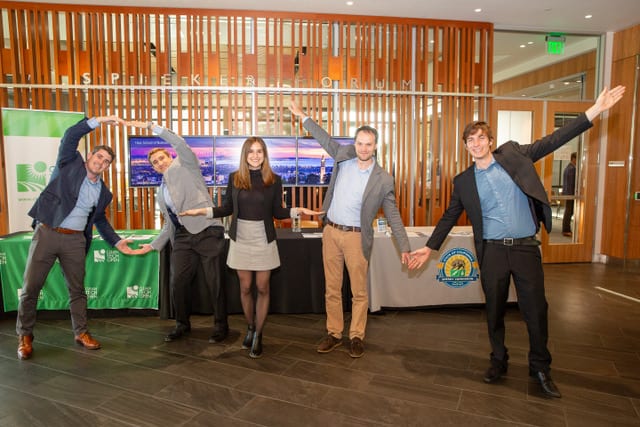
- 127 startups / projects since 2008 — more than half commercialized as startups or through licensing.
- $500+ million — raised in disclosed funding by these startups.
- 350+ people — currently employed.
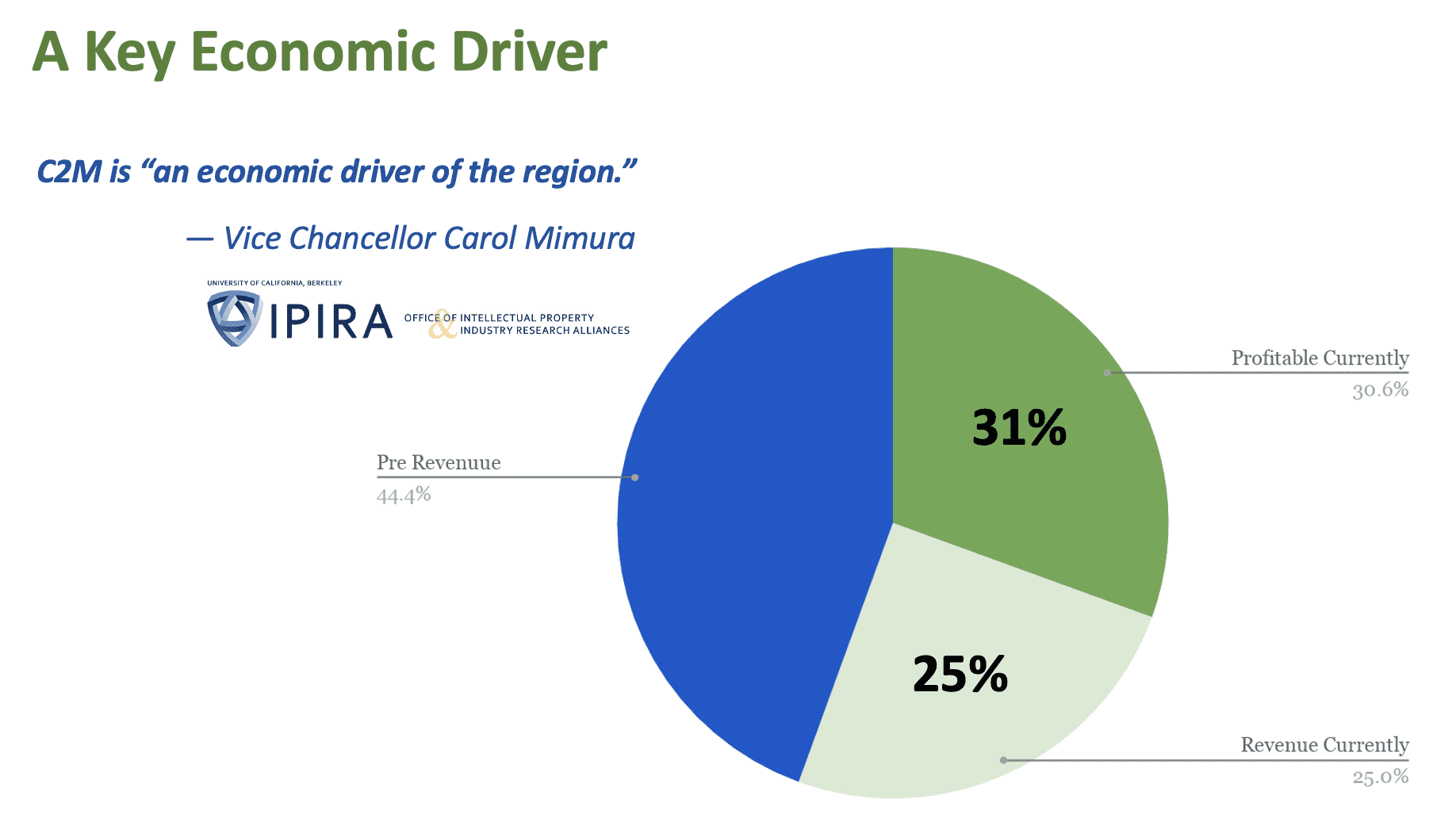
C2M sponsors, partners, and supporters share our vision of helping translate early-stage cleantech into successful startups. As a result, they help with project selection, team mentoring, financial support, and introductions to leading industry experts. In some cases, we share redacted versions of our commercialization studies to thank them for their support.
Haas launched the Michaels Graduate Certificate in Sustainable Business to empower new leaders to create the economic and social transition to a climate resilient, low-carbon, and equitable future. There are three certificate tracks designed to enable students to specialize in sustainability domains most relevant to their desired career paths: Corporate Sustainability, Sustainable Finance, and Impact Venture Capital. C2M is one of two “synthesizing course” choices for students in the Corporate Sustainability track.
- Synthesizing Course: Cleantech to Market (AI)
- FALL, 3 units
- Application due in Spring
Which track should I choose?
- Corporate Sustainability Track
- Overview: Understand the economic foundations of private and public sector climate change solutions and explore practical and strategic applications of sustainability and CSR
- Career Paths: “Mainstream” business practitioners (marketers, financiers, operations, accountants, etc.); sustainability/CSR practitioners; consultants
**C2M is an eligible elective for the other 2 certificate tracks**
- Sustainable Finance Track
- Can serve as 3 units of the 3 required units for domain courses
- Impact Venture Capital Track
- Can serve as 3 units of the 6 required units for domain courses
